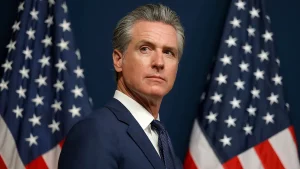Chinese Scholars Charged in Research Materials Smuggling Case
In a significant development that raises concerns about academic security, the Department of Justice has charged three Chinese national scholars with conspiracy to smuggle biological materials into the United States. Xu Bai, 28, Fengfan Zhang, 27, and Zhiyong Zhang, 30, all participants in J-1 visa academic exchange programs at the University of Michigan, allegedly attempted to import roundworm-related materials from China under false pretenses. “Allegedly attempting to smuggle biological materials under the guise of ‘research’ is a serious crime that threatens America’s national and agricultural security,” stated Attorney General Pam Bondi, highlighting the gravity of the situation. The case represents what authorities describe as part of a broader pattern of misuse within U.S. academic exchange programs, particularly involving international researchers who may exploit academic positions for unauthorized purposes.
The investigation revealed a complex scheme centered around the university’s Shawn Xu Laboratory in Ann Arbor, where the three scholars conducted their research. According to authorities, they received multiple shipments of concealed biological materials related to roundworms from Chengxuan Han, a Chinese Ph.D. student based in Wuhan who had previously worked at the university. Han had already been convicted of smuggling and making false statements before being removed from the United States, creating a precedent that makes this new case particularly concerning. Following Han’s removal, the University of Michigan launched an internal investigation, but when the three scholars refused to cooperate, they were terminated from their positions, which subsequently made them eligible for deportation under their visa terms.
The case came to a head on October 16th when CBP officers stopped the men for inspection at John F. Kennedy International Airport in New York City as they attempted to board a flight to China. During questioning, Zhiyong Zhang allegedly provided false information about his relationship with Han, while his colleagues Xu Bai and Fengfan Zhang admitted to receiving packages even after Han’s removal from the United States. This encounter at the airport proved crucial for authorities in building their case against the researchers, revealing what they believe to be deliberate attempts to conceal their activities and connections. U.S. Attorney Jerome Gorgen characterized the situation bluntly, stating that “These three men are part of a long and alarming pattern of criminal activities committed by Chinese nationals under the cover of the University of Michigan.”
Law enforcement officials from multiple agencies have emphasized that this case highlights significant vulnerabilities in academic exchange programs that could potentially be exploited to compromise national security. ICE Director Todd M. Lyons stressed that “Educational institutions must enhance their admissions procedures to prevent exploitation, which can pose risks to national security,” suggesting that universities may need to implement more rigorous vetting processes for international researchers. FBI Director Kash Patel reinforced that “academic research cannot excuse illegal activity,” drawing a clear line between legitimate scholarly work and actions that potentially threaten security interests. These statements reflect growing concerns about the potential dual-use nature of certain biological research materials and the challenges in monitoring their movement across borders.
The involvement of multiple federal agencies—including the FBI, Immigration and Customs Enforcement, Homeland Security Investigations, and Customs and Border Protection—underscores the seriousness with which authorities view potential biological smuggling cases. Jennifer Runyan, special agent in charge of the FBI Detroit Field Office, emphasized the agency’s commitment to protecting American interests, stating, “The FBI will not tolerate any attempt to exploit our nation’s institutions, whether higher learning or otherwise, for unlawful purposes.” This case appears to represent part of a broader effort by federal authorities to address potential security vulnerabilities in academic settings, particularly in research areas involving biological materials that could have implications beyond pure academic interest.
This case emerges against a backdrop of increased scrutiny of international academic collaboration, particularly in sensitive research fields. The charges against these scholars raise important questions about the balance between maintaining open scientific exchange and protecting national interests. As CBP Director of Field Operations Marty C. Raybon noted, “Foreign actors continue to seek ways to exploit vulnerabilities, including within our nation’s higher education system to advance their agendas.” The case may prompt universities across the country to reassess their oversight of international research partnerships and material transfers, potentially leading to more stringent protocols for handling biological materials in academic settings. For researchers and academic institutions, the case serves as a reminder that scientific work, particularly involving international transfer of biological materials, must strictly adhere to legal requirements and disclosure obligations, regardless of the scholarly context in which it occurs.











